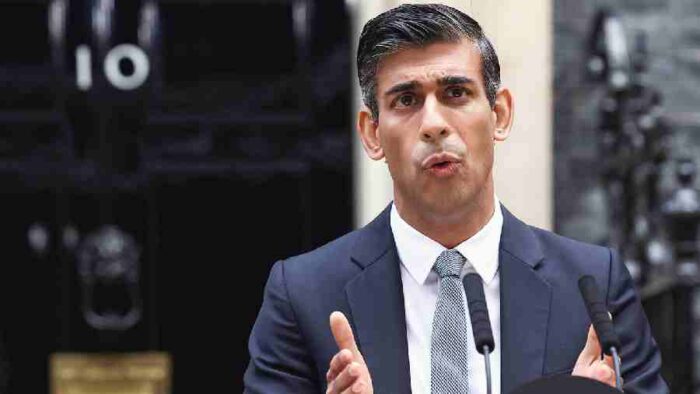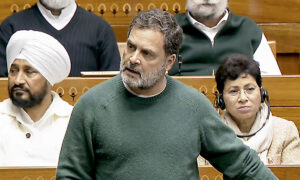
File Picture
In a surprise move, British Prime Minister Rishi Sunak has called a snap general election on July 4, 2024, months ahead of the expected date. Ending months of speculation as to when he would call a new poll, Sunak, stood outside his Downing Street office and announced early elections than many had expected. Unfortunately, according to the opinion polls, Conservatives are widely expected to lose to the opposition Labour Party after 14 years in power.
Announcing the date, Sunak said, “Now is the moment for Britain to choose its future and decide whether it wants to build on the progress we have made or risk going back to square one and no certainty. Over the next few weeks, I will fight for every vote, I will earn your trust and I will prove to you that only a Conservative government led by me will not put our hard-earned economic stability at risk.”
Sunak’s rain-soaked speech on the steps of 10 Downing Street sent the political establishment into a flurry as he began his campaign with his three pitches “Clear Plan, Bold Action, Secure Future”. The Opposition Labour Party Leader, Keir Starmer, kicked his campaign off with a simpler one-word message – “Change”. The parliament has also entered a “wash-up” phase, concluding non-contentious legislation before dissolution. Sunak took to office less than two years ago and since then has been struggling with any and every decision of his.
Sunak along with his Conservative Party colleagues and Opposition leader Starmer have hit the campaign trail as the Parliament is set to be dissolved in six weeks’ time. Starmer opined that the election would give the country an opportunity to end the “chaos” of Sunak’s Conservative government. He said, “No matter what else is said and done, that opportunity for change is what this election is about. A vote for Labour is a vote for stability – economic and political, a politics that treads more lightly on all our lives; a vote to stop the chaos. It’s time for change.”
Certainly, all is not well for Sunak as the polls have predicted a record defeat for the Conservative (Tory) party to Labour this year, thereby, marking the end of the Conservative Party-ruled government after 14 years, which has been mired in challenges and controversies. Questions still remain over the UK’s economic growth and Sunak’s Rwanda deportation policy, which is believed to have influenced his decision to call for early elections. Britain has suffered from high inflation and poor economic growth for several years. The issue of immigration has also hurt the Conservatives as thousands of asylum seekers have crossed the English Channel in risky boats, and the signature Tory policy of deporting some of these migrants has been criticised by members of Sunak’s own party and human rights organisations. These issues have made the upcoming election in the UK a high-stakes one, with a long road ahead of Sunak. However, he may take heart from the figures recently released by IMF, showing inflation in the UK fell sharply to 2.3 percent, its lowest level in nearly three years on the back of big declines in domestic bills. Apart from economy, healthcare, environment and climate change are also key issues that will influence the election.
Regarding the impact the sudden polls will have on India, is that India and the UK have been working on a Free Trade Agreement (FTA) for a long time since before Sunak came to power, as part of efforts to boost bilateral trade currently worth 38.1 billion pounds per year. The FTA talks which began in January 2022 year with Diwali 2022 set as the initial deadline by Johnson. Under Sunak-led Tory government, no new timelines were set but both sides were looking to get things signed off before a general election year in India and the UK in 2024. After doing 13 rounds of talks on the FTA, the 14th round started in January, where they were looking at sealing it by bridging differences on certain contentious issues including mobility of people and import duty concessions on certain items. There are 26 chapters in the agreement, including goods, services, investments, and intellectual property rights. With elections being announced in the UK, the hope of a deal being clinched by Sunak’s government have dimmed. However, the Labour Party has committed itself to “finish the job” but the timelines will remain uncertain.
The surprise poll date announcement of July 4 has certainly further delayed the long-awaited and much-anticipated FTA with India, the decision of early elections itself has left many questioning as to why such a hurry when Sunak had months to go?
[the_ad id=”55724″]


















